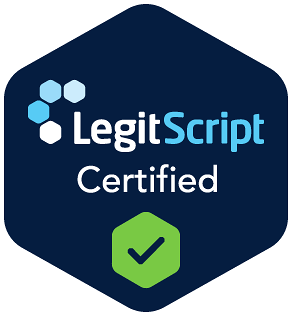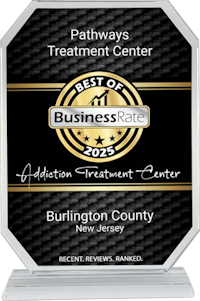Financial stress can be a major trigger for relapse. For individuals in early recovery, especially those transitioning into sober living, gaining control over their finances is not just a matter of dollars and cents – it’s a vital component of long-term stability. Budgeting creates structure, reduces anxiety, and empowers individuals to make confident decisions as they rebuild their lives.
At Pathways Treatment Center, our Life Skills Program includes financial education as a core pillar of sustainable recovery. In this guide, we’ll break down why budgeting matters in early recovery, how to get started, and actionable tips to help you with money management while living in a recovery housing environment.
Why Budgeting Matters in Early Recovery
Recovery is about more than just avoiding substance use – it’s about creating a new way of living. Budgeting gives structure to daily life, helps you plan for your goals, and can provide a sense of security during a vulnerable time. In early recovery, individuals often face sudden financial changes such as lost employment, medical debt, or lack of savings. Without a plan, these stressors can quickly become overwhelming.
A well-structured budget helps:
- Prevent impulsive spending, especially on triggers like alcohol or drugs
- Encourage responsibility and independence
- Build confidence and reduce anxiety about the future
- Establish financial habits that support long-term goals
Budgeting isn’t just about restrictions, it’s about freedom. When you know where your money is going, you regain control over your life.
In addition, budgeting can serve as a mirror that helps individuals identify patterns of financial self-sabotage that may have been present during active addiction. Perhaps spending was once used to cope with emotions or impulsivity led to frequent overdraft fees. Awareness of these patterns is the first step in changing them.
Budget Planning for Sober Living: Where to Start
Sober living environments provide structure and accountability, but they also come with shared costs, rules, and responsibilities. Whether you’re new to budgeting or starting over, here’s how to create a basic financial plan:
Start by calculating your total monthly income. This may include:
- Employment wages
- Disability benefits
- Unemployment or other assistance
- Support from family or scholarships
Even if your income is limited, being honest about what you have is the first step toward effective money management in recovery.
If your income is irregular, such as freelance or gig work, estimate your average earnings over the past three months. Use the lowest average as your planning baseline to avoid budgeting beyond your means.
Track your essential monthly expenses, including:
- Rent or fees for sober living housing
- Groceries and hygiene products
- Transportation (gas, public transit, rideshare)
- Medication or medical appointments
- Cell phone or basic utilities
Be realistic and include every necessity, no matter how small. If you take the bus to job interviews or need work clothes, factor that in.
Use categories and subtotals to see where you may be overspending. Many people are surprised to find they’re spending hundreds per month on food simply because they aren’t planning meals.
Recovery support may come with its own expenses, such as:
- Therapy or counseling not covered by insurance
- 12-step group donations
- Sober events or fellowship outings
- Drug testing or accountability fees
These aren’t just expenses, they’re investments in your sobriety. Make room for them in your budget.
If necessary, speak with your therapist or case manager about sliding-scale options or community-based support groups to reduce these costs.
Discretionary expenses include non-essentials like:
- Streaming subscriptions
- Dining out
- Personal care services (like haircuts)
- Entertainment or hobbies
These items often slip under the radar but can add up fast. Set a realistic cap to stay within your limits.
One helpful strategy is the 50/30/20 rule: 50% of income toward needs, 30% toward wants, and 20% toward savings or debt repayment. Adjust as needed for your unique recovery journey.
Even $5 a week adds up. Open a savings account, envelope system, or digital wallet and start building your emergency fund. Small savings now can be the safety net that prevents crises later.
Create mini-goals to stay motivated. For example, aim to save $100 over three months for a new pair of work shoes, or build a $200 buffer for unexpected expenses.
Tips for Money Management in Recovery Housing
Living in a sober environment presents both challenges and opportunities. Here’s how to stay financially grounded while sharing space with others:
If you have a steady income, set up automatic transfers for rent, savings, or essential bills. This reduces the chance of forgetting and protects your recovery by limiting temptation.
Automation also provides peace of mind. When key bills are paid automatically, you can focus more on your recovery milestones and less on due dates.
Using cash for groceries or entertainment helps limit spending. Once the cash is gone, you’re done. It’s a physical boundary that makes financial mindfulness easier.
Cash also reduces the chance of overspending on impulse buys, especially when you’re out with friends or triggered emotionally.
Free apps like Mint, EveryDollar, or Goodbudget help you track spending and visualize patterns. You can also use a simple spreadsheet or notebook. The key is consistency.
Look for apps that allow you to create categories, set spending limits, and generate monthly reports. This visibility helps you spot progress and stay accountable.
Money can cause tension in any living situation. Be upfront about your limitations, and if you split bills, agree on clear payment expectations. Avoid lending or borrowing money – it’s a boundary worth protecting in recovery.
Setting clear boundaries also protects you from being financially manipulated or enabling someone else’s relapse. Your financial health is just as important as your emotional one.
If you see something you want but don’t need, wait 24 – 48 hours before purchasing. This builds impulse control and often helps you realize you can do without it.
Consider keeping a “want list” in your journal. Revisit it at the end of the month to evaluate which items still matter. This mindful pause often turns desire into discernment.
The Mental Health Benefits of Financial Stability
Money issues are one of the leading causes of anxiety and depression. For people in recovery, especially those healing from co-occurring disorders, financial peace of mind can be a powerful contributor to emotional stability.
Financial stability helps to:
- Reduce stress and minimize relapse risk
- Restore self-trust and self-worth
- Promote routine, structure, and goal-setting
- Support healthy decision-making
Budgeting gives you more than just control over your bank account – it gives you control over your life narrative. By showing yourself that you are capable of handling responsibility, you reinforce the belief that long-term sobriety is possible.
Financial planning also reduces shame, a common experience in early recovery. Taking active steps to repair your financial life helps undo the guilt associated with past mistakes.
Life Skills for Long-Term Recovery Success
At Pathways Treatment Center, we understand that recovery doesn’t end with detox or inpatient treatment. Our Life Skills Program equips individuals with practical tools for reintegrating into daily life, and budgeting is one of the core pillars.
Our program includes:
- Financial literacy education
- Job readiness and interview coaching
- Meal planning and grocery budgeting
- Healthy routines and time management
These tools work in harmony with therapy, relapse prevention, and sober living strategies. When clients can manage their finances, they are better equipped to stay in recovery and avoid high-risk behaviors.
Our Life Skills Program empowers clients not just to survive, but to thrive. We encourage peer mentorship, group workshops, and one-on-one coaching to ensure that financial planning becomes a regular habit, not just a one-time lesson.
To deepen your support, we also encourage participation in aftercare services and relapse prevention programs that reinforce these skills over time.
Additionally, if you’re transitioning into independent housing after treatment, our team can help you explore transitional and sober living options that match your financial and recovery needs.
Final Thoughts: Staying Accountable with Your Money
Learning to manage money in recovery is a journey of self-trust, discipline, and growth. Early recovery often comes with financial challenges, but with structure, support, and guidance, those challenges can transform into strengths.
Remember:
- Start small and stay consistent
- Lean on tools, peers, and professionals for support
- Be honest about your income and spending
- Prioritize your recovery in your budget
Your financial health and your sobriety go hand in hand. With budgeting skills and a clear plan, you’re laying the groundwork for independence, confidence, and long-term success.
If you or a loved one is seeking recovery support that extends beyond treatment, Pathways Treatment Center is here to help. From sober living guidance to life skills training, we’re committed to walking with you every step of the way. Contact us today and let us help you stay accountable with your money in recovery!



